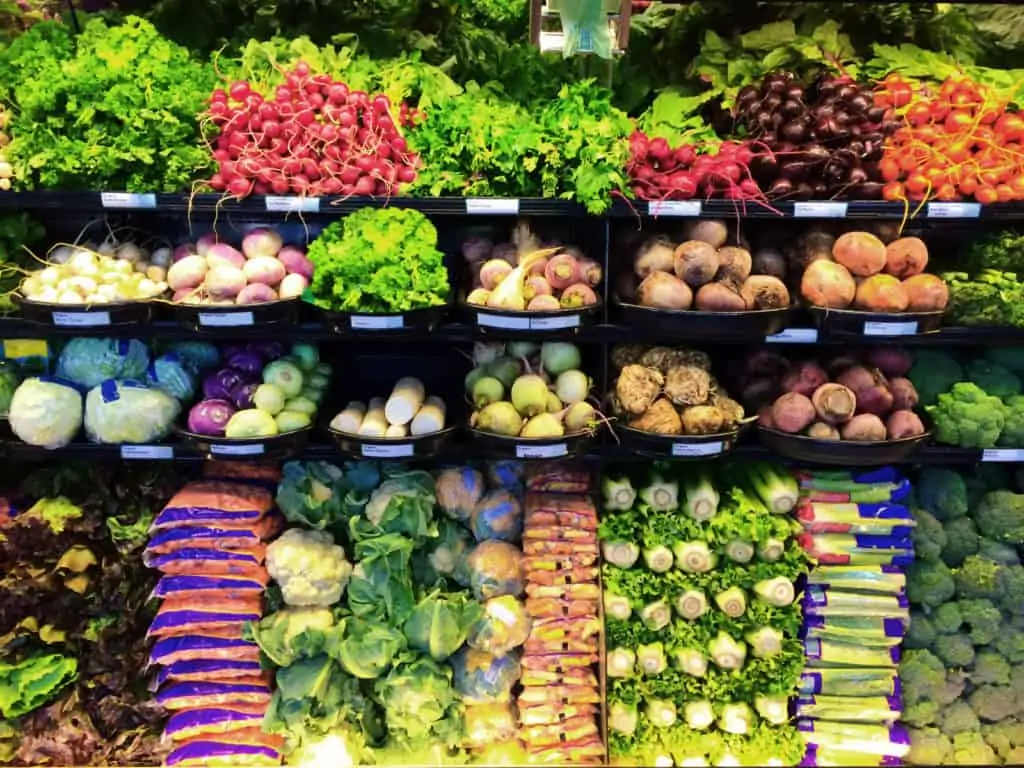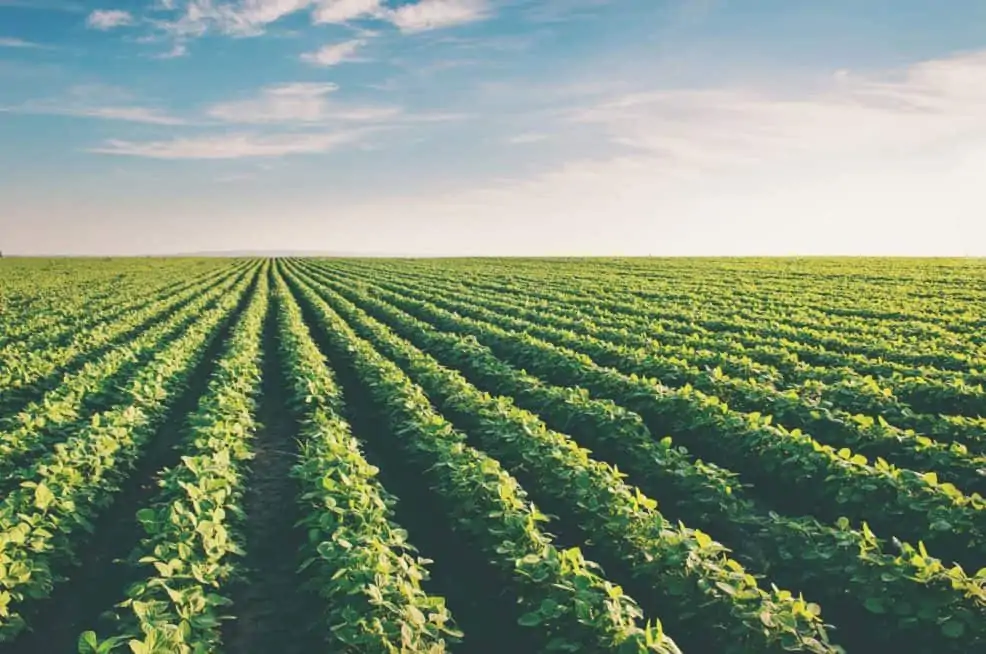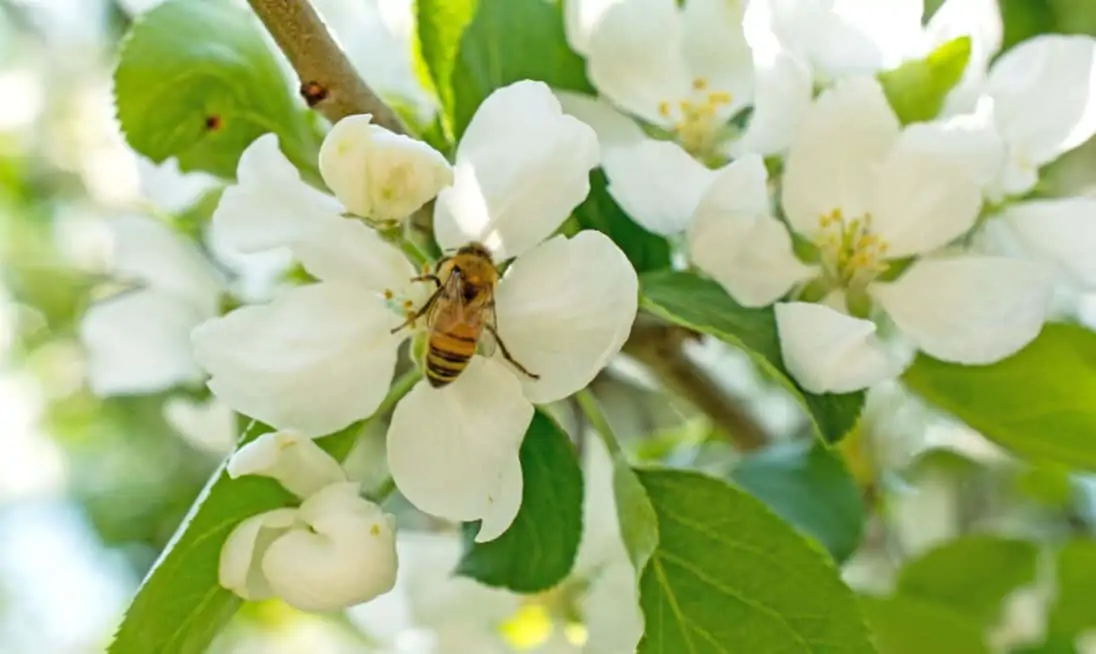Reducing pesticide use is an important component of a sustainable food system, but as a labeling claim, “pesticide free” is not trustworthy. The Food and Drug Administration does not have a regulatory definition or standard for the “pesticide free” claim. In the absence of a specific definition, the FDA expects the claim to mean that no pesticide residues are present. The agency does not expect that the foods were produced without the use of pesticides at any point in production, including cultivation, processing, and storage. The FDA does not require producers making the claim to be certified or test their foods to ensure the claim is truthful.
Unless the food is tested for residues, the “pesticide free” claim can be misleading. Even when farmers do not use pesticides, crops can be contaminated with pesticides that drift from neighboring farms or are present in the environment.
Instead, consumers should look for the organic label, which is regulated, verified, and means the crops were not treated with synthetic pesticides at any time.

What this claim means
Every year, the agricultural sector uses nearly 900 million pounds of pesticides, which include the active ingredients of herbicides, insecticides, fungicides, fumigants, sulfur, and oil.
“Pesticide” is a general term for products that control living organisms that are considered pests. Pesticides can target insects (insecticides), plants (herbicides), fungi (fungicides), or other types of pests.
When people think of pesticides applied to crops, they probably picture an airplane flying over a farm field, or a truck driving through an orchard, spraying pesticides on the crops while they are growing. But many pesticides are applied to seeds, soil, and crops before and after the actual growing period.
For example, on some fruits and vegetables, one-third to one-half of the residues are from pesticides that were not applied in the fields or orchards but in storage.
Some pesticides applied in storage target insects, but others are used to lengthen the shelf life of the produce. For example, many types of fruit, such as oranges and peaches, are treated with a fungicide to inhibit mold. Chemicals can also be applied to vegetables after harvest to prevent sprouting.
In the case of seeds, fungicides may be applied during storage to prevent molding, or the seeds may be individually coated in pesticides as a prophylactic pest treatment. Additionally, pesticides in the form of gas, known as fumigants, are often injected into the soil prior to planting to sterilize the fields from subterranean pests.
Why it matters
Using pesticides is not sustainable
- Pesticides cannot provide a sustainable solution to pest problems. It is a biological fact that living organisms will adapt in response to threats to their species’ survival. As a result, weeds, insects, and other pests will develop resistance to the chemicals that are designed to destroy them (usually within ten years of the pesticide’s introduction). Therefore, pesticides are effective only for a short period of time, until the pests become resistant. Chemical companies must constantly develop new pesticides that are toxic to the target organisms in different ways. It cannot work in the long-term.
- Non-chemical pest control practices are a safer and more sustainable alternative. Pests can be controlled using non-chemical methods. Integrated pest management (IPM) is an approach to managing pests that uses a variety of tools, including cultural and biological methods. It aims to solve pest problems while minimizing risks to people and the environment, using chemical pesticides only when needed. Non-chemical pest control practices are effective, and yields on farms that do not rely on chemical pesticides are similar to those of conventional farms. Farms that depend on practices such as crop diversity and crop rotation for pest control are also profitable; in fact, organic farming systems have been shown to be more profitable than conventional.
- On certified organic farms, the use of chemical pesticides is prohibited. Certified organic farmers prevent pest problems with a variety of cultural and biological methods. The organic standards require that farmers implement various pest, weed, and disease management practices, including but not limited to:
- Crop rotation
- Sanitation measures to remove disease vectors, weed seeds, and habitat for pest organisms,
- Cultural practices that enhance crop health
- Mechanical or physical methods, such as introduction of predators of the pest species, or nonsynthetic controls, such as traps, lures, and repellents
- Mulching with fully biodegradable materials to suppress weeds
- Mowing
- Livestock grazing
Pesticides have negative impacts on human health and the environment
- Pesticides are designed to be toxic to living organisms and will inevitably impact non-targeted plants, insects, and other living organisms.
- Fully understanding and documenting the range of negative effects on non-targeted living organisms—including humans—requires long-term and in-depth study. Because of the inherent toxicity of pesticides, medical and public health experts have long raised concerns.
- Approximately 40 different EPA-registered pesticides on the market are classified as known, probable, or possible human carcinogens.
- The national Centers for Disease Control and Prevention (CDC) has found that 29 different metabolites—the components of pesticides that remain in the environment or body after they are broken down—are present in the bodies of most Americans.
- Pesticides have been linked to chronic health complications in children, including neurodevelopmental or behavioral problems, birth defects, asthma, and cancer.
- The EPA has identified at least six chronic diseases that have a well-documented association with agricultural pesticide exposure: non-Hodgkin lymphoma, prostate cancer, Parkinson’s disease, lung cancer, bronchitis, and asthma.
- High pesticide exposure among farmers has also been linked to ovarian cancer, stomach cancer, hypothyroidism, changes in memory and attention, and increased respiratory disease.
- Between 10,000 and 20,000 physician-diagnosed pesticide poisonings occur each year among farmers and farmworkers.
- An estimated 72 million wild birds die every year from exposure to pesticides used on farms.
Impacts of the most widely used pesticides:
- Glyphosate is the most widely used herbicide in U.S. agriculture (270 to 290 million pounds were used in 2012). It is also known by its trade name, RoundUp(™). The International Agency for Research on Cancer (IARC) classifies glyphosate as a probable human carcinogen. A recent study of rats shows that very low doses of glyphosate—doses that are permitted by regulators worldwide—cause non-alcoholic fatty liver disease.
- Atrazine is the second most widely used herbicide in U.S. agriculture (64 to 74 million pounds were used in 2012). It has been found in groundwater and rural water supplies and is a suspected endocrine disruptor, which may affect reproductive health and children’s sexual development. After scientific research revealed the herbicide’s pervasive presence in water supplies, detrimental impacts to aquatic life, and potential human health threats, the European Union banned atrazine in 2004. Despite similar evidence available in the U.S., however, the EPA concluded after a review of atrazine in 2003 to allow the chemical’s continued use with some additional restrictions.
- 2,4-D is an herbicide and the fifth most widely used pesticide in U.S. agriculture (30 to 40 million pounds were used in 2012). 2,4-D and other chlorophenoxy herbicides are classified by the International Agency for research on Cancer (IARC) [H page 1] as possibly carcinogenic to humans. Studies show an association between cancer mortality and living near farm fields treated with 2,4-D. This herbicide has also been detected in dust samples from vacuum cleaners in 95 percent of homes near farms in Iowa.
- The two most widely used insecticides in 2012 were the organophosphate insecticides chlorpyrifos and acephate. Organophosphate insecticides are toxic to the neurological system. The use of organophosphate pesticides is decreasing, from an estimated 70 million pounds in 2000 to 20 million pounds in 2012. Metabolites of these pesticides have been detected in the urine of children and adults. Organophosphate pesticide exposure has been linked to deficits in IQ, attention, and behavioral development in children.
- To deal with increasing pest resistance to organophosphate insecticides, farmers are replacing them with other classes, including neonicotinoids. Neonicotinoid pesticides also target the nervous system and are potentially harmful. Since it is a newer class of insecticide, there are few studies on the precise effects of neonicotinoids on mammals. Emerging developmental neurotoxicity studies raise concerns that these pesticides may adversely affect human health, especially the developing brain. These pesticides are implicated in honeybee deaths and colony collapse disorder.

Can you trust the claim? Is it verified?
No. On its own, a “pesticide free” claim is not regulated by the Food and Drug Administration (FDA), which has no regulatory definition for it. Producers making a “pesticide free” claim are not required to have this claim verified through on-farm inspections or residue testing.

Look for these seals:
Consumers looking for foods produced with limited or no use of pesticides should look for one of these meaningful labels:
USDA Organic
USDA Organic standards technically prohibit synthetic materials, including synthetic pesticides. Some exemptions to this prohibition are allowed, if the materials undergo a review and approval process and meet certain criteria outlined in the law. Organic standards require ecologically sustainable farming practices including crop rotation, use of cover crops, and non-chemical pest control.
- There are currently no synthetic herbicides approved for use on organic food crops.
- All neonicotinoid pesticides are prohibited on organic farms.
- The herbicide glyphosate is prohibited on organic farms.
- All organophosphate pesticides are prohibited on organic farms.
- Only ten synthetic insecticides are approved for use on organic farms. Some can be used only if they do not come into direct contact with soil or crops (e.g., as bait traps).
- The herbicide atrazine is prohibited on organic farms.
- Synthetic soil fumigants are prohibited on organic farms.
- Biodiversity is richer in organic farm fields than conventional ones.
- Children who eat organic fruits and vegetables have fewer pesticide residues in their bodies compared with children who eat conventional fruits and vegetables.
Demeter Biodynamic
To be Demeter Biodynamic certified, a farm must meet all the requirements of the USDA’s National Organic Program, in addition to the more rigorous Demeter standards. Demeter Biodynamic standards prohibit farmers from using toxic synthetic pesticides. Like the organic standards, the Demeter Biodynamic standards require ecologically sustainable farming practices including crop rotation, use of cover crops, and non-chemical pest control.
Don’t rely on these claims or seals:
Natural
Nearly two-thirds of consumers (63 percent) think that the “natural” claim on a food label means the product contains no pesticides. However, the FDA has no regulatory definition for the “natural” claim on food, and the claim does not mean that the crops were grown without pesticides.
